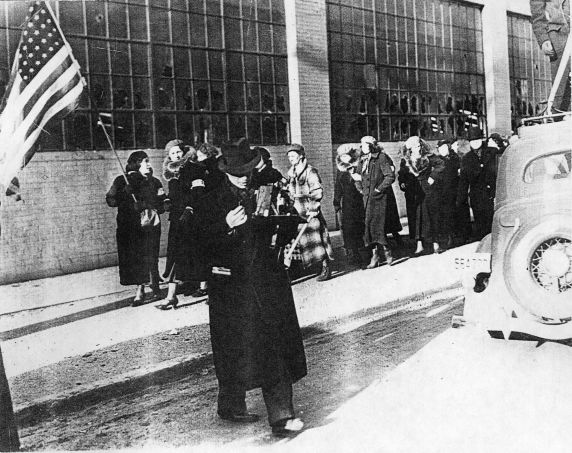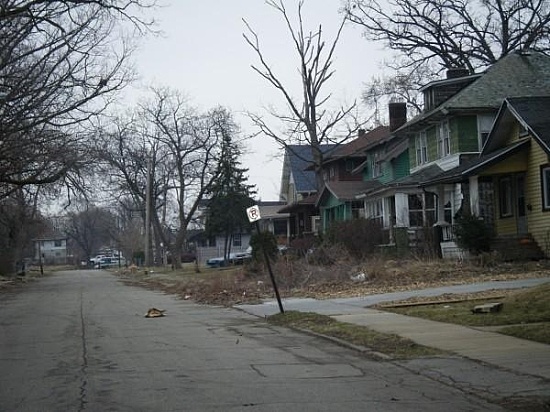Since the water crisis hit Flint, researchers and journalists have tried to tell Flint’s story. Outsiders have capitalized in one way or another off the tragedy that effected the city’s people. Due to many stories revolving around Flint and its misfortunes, researchers and reporters have sent out a message that plagues Flint with a bad reputation that’s undeserved. In a play written by Jose Casas, a theatre professor at the University of Michigan – Ann Arbor, he explores the water crisis that has consumed the Flint name. In one of his scenes, his actors portray a group of Flint youth who are enrolled in the University of Michigan – Ann Arbor and are trying to leave Flint behind, grateful for the opportunity to go such a prestigious school. After our class read this scene, it sent a wave of anger through each person in the room. As U of M-Flint students, we felt a sense of betrayal by Casas. He portrayed our city as a dump that people were eagerly hoping to escape from, but we see something different in Flint.

Through the eyes of students and born and raised Flintoids, this city is tough, and within the chaos there is undeniable beauty. Although we disagreed with Casas’ depiction of Flint, it led to the creation of a pivotal scene in our recreation of Shakespeare’s As You Like It. In this specific scene, one of the main characters, Rosalind, gets banished from the University of Michigan – Ann Arbor, and is sent to attend school at the University of Michigan – Flint. At first, Rosalind is appalled that she would get sent to such a horrific place, but over time, she realizes that this is a chance to reinvent herself, take risks, change for the better, and create a life of her very own. Unlike Ann Arbor, Flint offered her a fresh start without judgment, similar to the Forest of Arden in As You Like It. The Forest of Arden welcomed newcomers from all walks of life, and allowed the characters to transform into better versions of themselves. Much like the forest, Flint is full of diversity, culture, and the community accepts one another in order for everyone to grow.Our class took feelings of anger and misunderstanding from a false depiction of Flint and transformed them into a love letter dedicated to this city and its people.
In the research phase of this capstone project, students were encouraged to leave our comfort zones to learn about the realities of the city, past and present, in order to depict it accurately. Some students took the opportunity to visit and interact with children at the Whaley Children’s Center, which allowed them to see a small part of Flint through the eyes of the youth. Kyle Maddock, a student working on the capstone project, stated that he enjoyed the experience of scouting out places throughout Flint where opportunity is provided for citizens to examine who they want to be. Other students spent several weeks with seniors who have spent their entire lives in Flint. The seniors shared valuable stories of Flint back in the day, and contributed to our overall understanding of the strong community of people within this city. Students also conducted extensive research on Flint’s history in order to learn more about the city’s roots. Many students in the class got very interested in the Flint Women’s Emergency Brigade, which consisted of 350 women who banded together during the strike against General Motors in 1936. Their act of courage was a turning point in the labor movement. These women were an important part of winning the strike, and making the United Automobile Workers a legitimate union.

Throughout the course, our main focus for the capstone project has been collaboration. Students wanted the opportunity to experience a collaborative project that will assist them in their future careers. Along the way, we discovered that there are many challenges and rewards that come with writing as a team. Collaborative writing helped grow skills such as filtering through ideas, agreeing on the overall style of the piece, and learning to communicate in an efficient and effective fashion. Throughout the process, students were extremely supportive of each other; this was crucial because most were venturing outside their comfort zones, writing drama and collaborating with other writers. Overall, this experience has contributed to our skills in group work, which is an inevitability we all face when going into the real world. Much like the characters in Shakespeare’s As You Like It, our class also ventured into unknown terrain and pushed ourselves in order to recreate this piece, and shed a light on the overlooked beauty of Flint. In the final scenes of our play recreation, Rosalind and Celia are given the chance to return to the University of Michigan – Ann Arbor, but ultimately choose to stay in Flint, showing that Flint is a place where the characters feel most at home and can be their truest selves. Some students have even decided to pursue careers in Flint in order to give back to the community. Brittany Wilcox, another student working on the project, stated, “This course has greatly impacted my view of Flint, so much so that my ambitions have begun to change. I want to understand the city better and use my knowledge of it, and of literature and communication to improve its condition. We, the people of Michigan, and citizens of Genesee County are the best people to create real change.” Much like Rosalind and Celia, Flint has grown on our class in significant ways, and has made an impact that we will carry with us when venturing into the next chapter of our lives.
By Natalie Shelton
